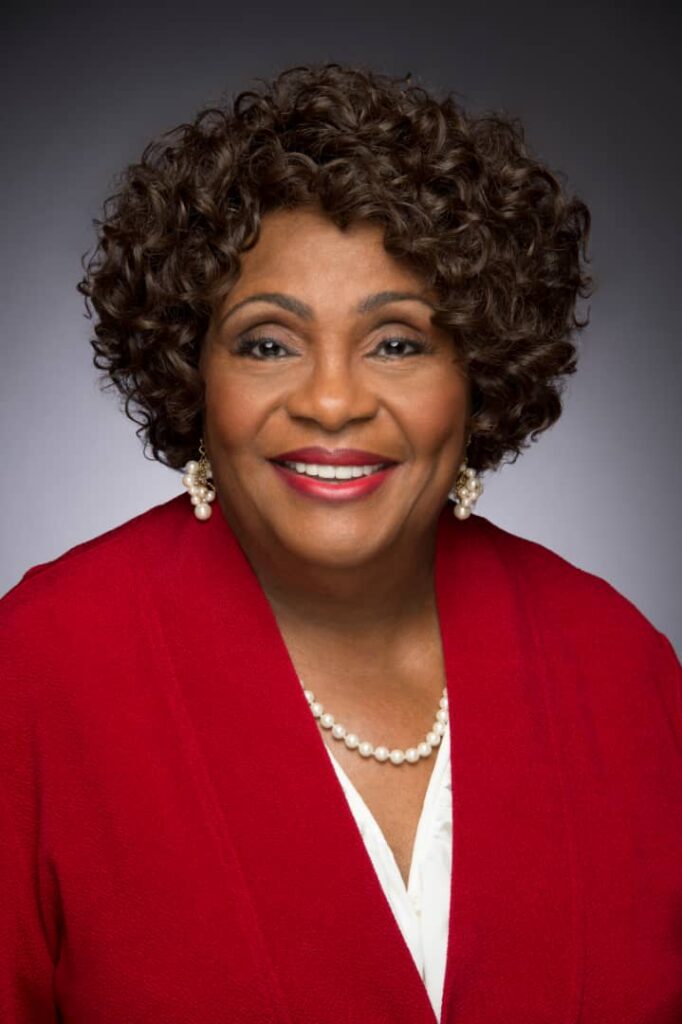
Barbara left the court system, went to Africa and using a curriculum she developed she provided entrepreneurship training to African women in Lusaka, Zambia. She returned to Baltimore and from the basement of her home, using an unemployment check as startup capital, she founded her first company. Within fifteen years she founded three companies. Her combined companies evolved into a multi-million-dollar enterprise that trained more than 2,000 people, hired more than 850, and was responsible for 75 people starting in management positions in the healthcare industry. Barbara provided housing, created jobs, and helped low-income families earn higher salaries and acquire access to healthcare benefits that provided them with means of getting off welfare rolls and moving from dependence to independency and self-reliance. She wrote the curriculum and developed a training program to train in-home healthcare aides to care for people with developmental disabilities.
For twelve years Barbara was the host of a weekly radio talk-show on WEAA Morgan State University’s radio station. On the show, called “the Business Reachout Forum,” Barbara interviewed guests and engaged in conversations with her thousands of listeners, nationally and internationally. Using a curriculum she developed, Barbara facilitated on-air seminars in business-development, self-development, words of wisdom and repurposing your life. From the Heights broadcasting station Barbara hosted a podcast on Facebook called, “Straight Talk with Barbara A. Robinson. She is the author of ten books with seven already published and number eight to be launched later this year. The University of the District of Columbia in Washington, D.C., used excerpts from Barbara’s business book in their business classes.
Barbara is one of the founders of the Greater Baltimore Black Chamber of Commerce, the State of Maryland Black Chamber of Commerce, and the Maryland Minority Women Business Owners Association. She is the former chair of the Maryland Legislative Black Caucus. Barbara is affiliated with more than 50 organizations and the recipient of more than 100 awards including: being presented the Key to the City in three states; honored at the White House by President Bill Clinton; inducted into Maryland’s Women Hall of Fame; voted one of Maryland’s Top 100 Women; voted Legislature of the Year twice; featured in the book: Women of Achievement in Maryland’s History; SBA/Avon East Coast Women of Achievement winner; and Entrepreneur of the Year, to name a few.
After 43 years of leadership in education, entrepreneurship training, developing and operating employee assistance programs (EAPs), job readiness, workforce development, employing and training older adults in a program titled “Dream, Design, Do,” in 2006 Barbara was elected to the House of Delegates. After spending 10 years as a State Delegate as a member of the Appropriation Committee, in 2016 Barbara was appointed by Governor Larry Hogan to a seat in the Maryland State Senate.
A PARTIAL LIST OF LEGISLATIVE ACCOMPLISHMENTS
Among Barbara’s legislative accomplishments are the following: She directed $800 million dollars to small, minority and women businesses. She ensured that health care providers were included in the minimum wage bill. She passed legislation that allowed returning citizens to be hired by the casino industry. She passed legislation to extend the hours of operation of Enoch Pratt libraries and decreased the hours of operation of liquor stores located near schools in Park Heights. She was a member of a team that invested in education by directing 1.1 billion dollars to renovate 25 schools and build 15 new schools and passed the “locked box” bill to ensure that the funds remained in the education budget. She passed legislation to protect older adults and vulnerable populations by passing the abuse registry bill so that seniors can age in their homes. She ensured that $5 million were directed to Coppin State University’s Business School. She passed legislation to examine the challenges for and opportunities of minority and women own businesses including access to capital. She passed legislation that directed $10 million to launch Cyber Warrior programs in all of Maryland’s historical black colleges and included the Baltimore City Community College. She passed legislation that included $2 million in the Kirwan Commission’s budget to expand community schools and Judy Centers and introduced legislation to teach financial literacy and entrepreneurship in high schools. She passed legislation to reclassify non-profits and minority businesses. Her bills provided senatorial and delegate scholarships be offered to students who enter an apprenticeship program rather than enrolling in college; a bill that requires water bills and property taxes not be combined and used to foreclose on home-owners property; authorized the governor’s office of small and minority businesses to research and combine resources that provide access to capital for small businesses; Barbara’s bill changed the name of the governor’s office of minority business.
Barbara is a proven leader with experience in various genres including education, criminal justice, writing, publishing, training, proposal and grant writing, business development, workforce development, starting and operating a business, politics, and welfare reform.
In preparing young leaders to take their place in the IT industry, Barbara, in collaboration with Digitall Systems and Northrop Grumman, launched a cyber security program at Morgan State University and Coppin State University; a Conscious Venture lab at the Baltimore City Community College which is a small business incubator project. Barbara engaged U.S. Congresswoman Maxine Waters from California, and Congressman Elijah Cummings from Maryland to work on expanding the opportunities for and decreasing the obstacles of minority franchisees in the United States.
